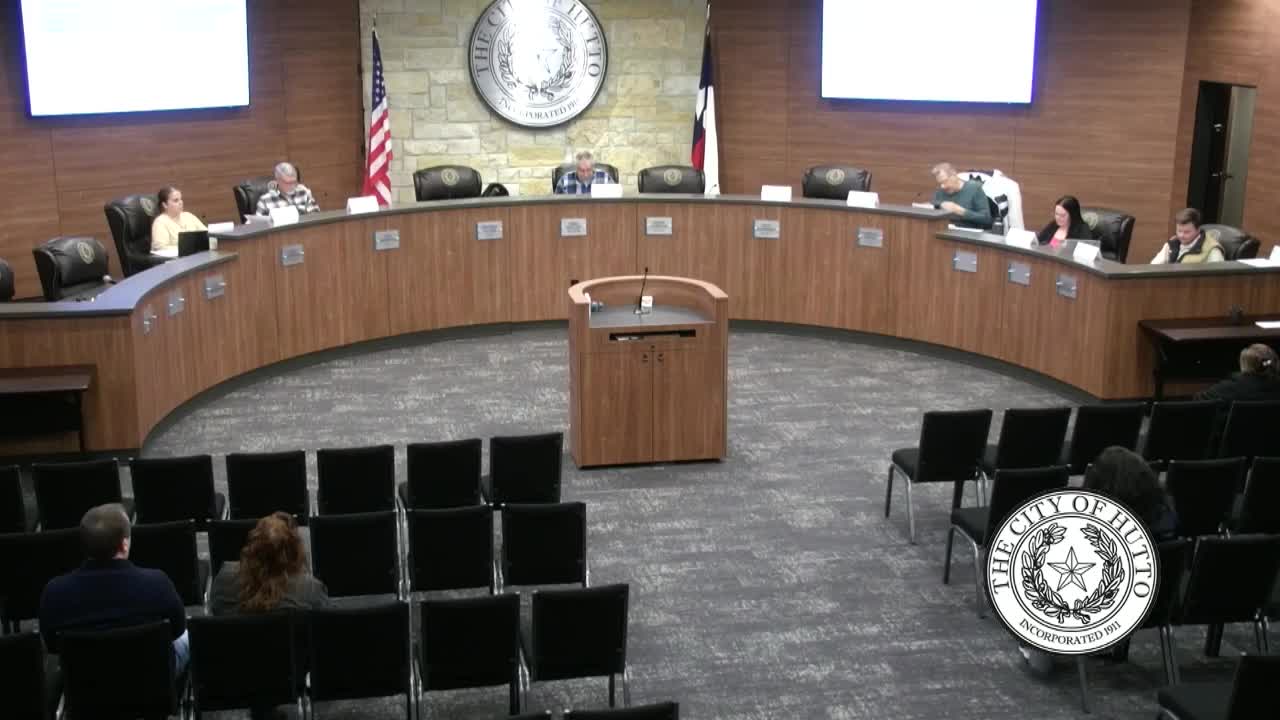Planning commission recommends disapproval of accessory dwelling unit permit at 224 Brown Street
Get AI-powered insights, summaries, and transcripts
Subscribe
Summary
The commission voted 4-0 to recommend that city council deny a specific use permit (SUP) request for an accessory dwelling unit at 224 Brown Street after staff said the structure currently exists without required permits and residents submitted objections.
The Hutto Planning and Zoning Commission on Jan. 7 voted 4-0 to recommend city council deny a specific use permit for an accessory dwelling unit (ADU) at 224 Brown Street in the Huddle Park subdivision.
Staff said the property lies in the SF-1 single-family zoning district inside the Huddle Park Section 5 final plat and that the parcel was described in staff materials as "78 100 square feet," which staff said meets the minimum lot size listed in the packet for an ADU. According to the staff presentation, the guest dwelling and several other improvements were constructed without permits (listed dates in the packet include garage work in April 2009, a house extension in February 2010, a guest house in August 2010, flatwork in May 2021 and a gazebo in September 2022). Staff recommended approval of the SUP as presented, contingent on code requirements and any zoning-board-of-adjustment variances necessary for setbacks.
Five written objections from nearby property owners were in the record; those objections cited privacy, property values, neighborhood character and concern about rental or short-term rental uses. At the public-hearing portion of the item, a resident identified as Mike (who said he lives within the 600-foot notice buffer) asked how the city treats retrospective construction and whether owners must seek permits; staff explained permits are required and that homeowner-obligations such as HOA approval are separate from the city process. Another speaker, Jim Morris, identified himself as a resident of Huddle Park and a member of the HOA board; he described long-standing compliance issues in the neighborhood and raised a legal point about HOA enforcement timelines under Texas law (he said his recollection of statutes could be incorrect and noted he is not an attorney).
Commission discussion emphasized several technical concerns in staff materials: apparent building encroachment over the building line, a large area of impervious cover listed in the packet (documented as 68.7 percent in the materials), the absence of building permits for some of the listed improvements and potential drainage consequences from extensive concrete. Commissioners pointed out that one recent ADU case came to the commission after permits were obtained, and several said they were reluctant to approve a retrospective SUP in a case where the structure already exists without required permits and where packet photos and materials did not answer drainage and setback questions.
A motion to recommend disapproval to city council was made and seconded; the commission voted 4-0 in favor of the recommendation to deny the SUP. The record shows staff will continue to work with the applicant and that any future resubmission would need to address permit, setback, drainage and impervious-cover issues and any required variances to the Zoning Board of Adjustment.
The commission ction is a recommendation to city council; final authority for issuing a specific use permit rests with the council and with any required Zoning Board of Adjustment determinations.
